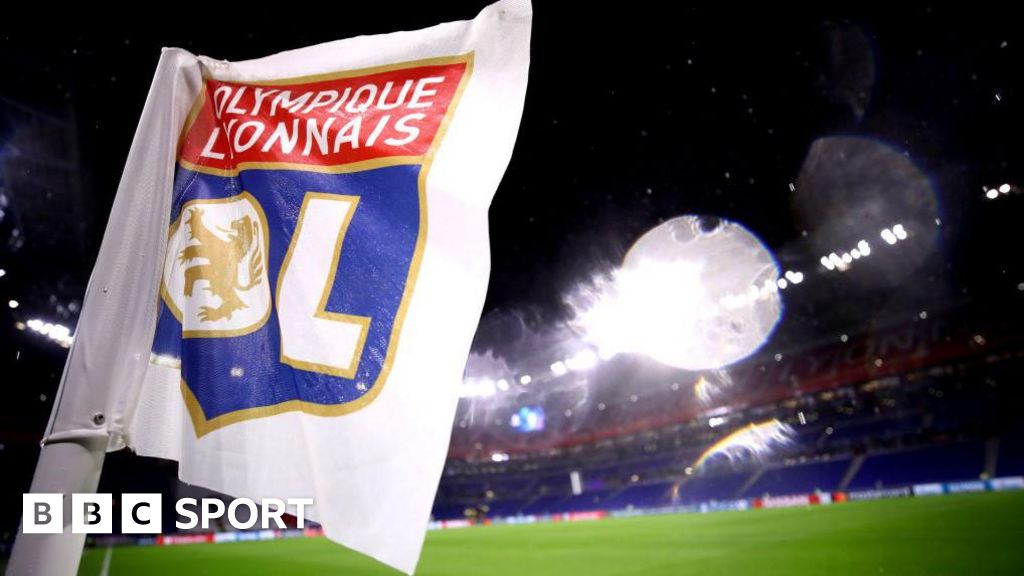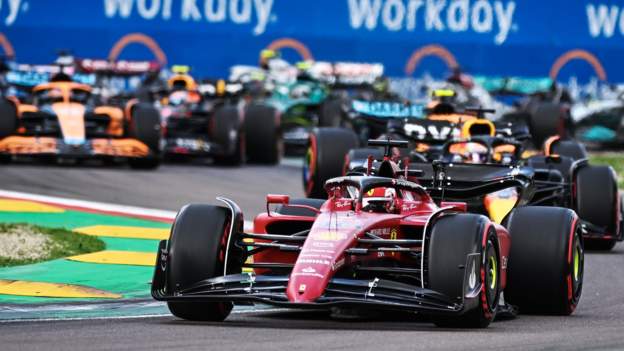A plan to double the number of Formula 1 ‘sprint’ events next season is being held up by governing body the FIA.
The teams unanimously backed a proposal from commercial rights holder F1 to hold six sprint events next year at Tuesday’s meeting of the F1 Commission.
But the FIA said in a statement that it was “evaluating the impact of the proposal on its trackside operations and personnel”.
Several sources say the FIA asked for more money in return for its support.
Senior sources have told BBC Sport they were surprised by FIA president Mohammed ben Sulayem’s stance, which has annoyed F1 and a number of the teams.
The FIA already receives about $40m ($30.7m) a year from F1, as well as an extra $1m for every race held above 20, in addition to income from promoters.
An FIA spokesman said the request was “not entirely money-related” but was “for a genuine operational purpose” to do with “ensuring we have the resource to adequately do our job”.
“We’re not a profit-creating organisation,” he said, “but we do need to be properly resourced.”
He said sprint events had “a significant impact on the workload of staff”, adding that “we would probably need to increase the number of operational staff in areas such as scrutineering, parc ferme and tyre return.”
The FIA said it would “provide its feedback to the Commission” at a subsequent meeting.
F1 has been keen to increase the number of ‘sprint’ events because it believes that the moving of qualifying to Friday and a short race on Saturday to decide the grid for the grand prix has enhanced both income and interest.
It had originally hoped to hold six sprints this year, after introducing the format at three races in 2021, but was unable to win the necessary support from the teams as a result of a disagreement over financial compensation.
The F1 Commission is a body of senior figures, featuring F1, the FIA and the team principals, which is the final step in the rule-making process before legislative body the FIA world motorsport council.
No final agreement on new engine rules
The new engine regulations to be introduced in 2026 were also discussed, without a final agreement.
A general framework has already been agreed – the engines will remain 1.6-litre V6 turbo hybrids but the complex MGU-H part of the energy recovery system will be removed, and the proportion of power created by the hybrid system will be increased to 50%. A 100% sustainable fuel will be used.
It is hoped that the reworked regulations will attract new manufacturers to the sport.
The board of the VW Group has approved in principle an entry by its Audi and Porsche brands but it is waiting for the final version of the regulations before making a firm commitment.
The chassis regulations will also be modified in 2026, following the introduction of sweeping new rules this season.
These will:
- Reduce drag to improve sustainability
- Take further steps to generate competitive racing and enabling the cars to follow each other closely
- Reduce the car dimensions
- “Reduce or contain” total mass
- Continue to standardise or simplify certain components to reduce costs and expand the use of sustainable materials and technologies
Finally, F1 will trial a reduction in the number of tyre sets used by each team on a grand prix weekend from 13 to 11 at two events in 2023, again on sustainability grounds.




















